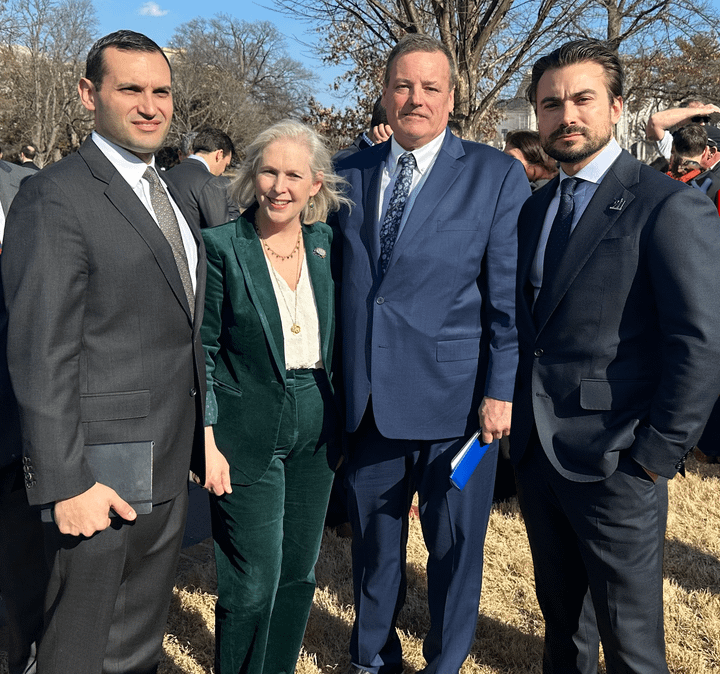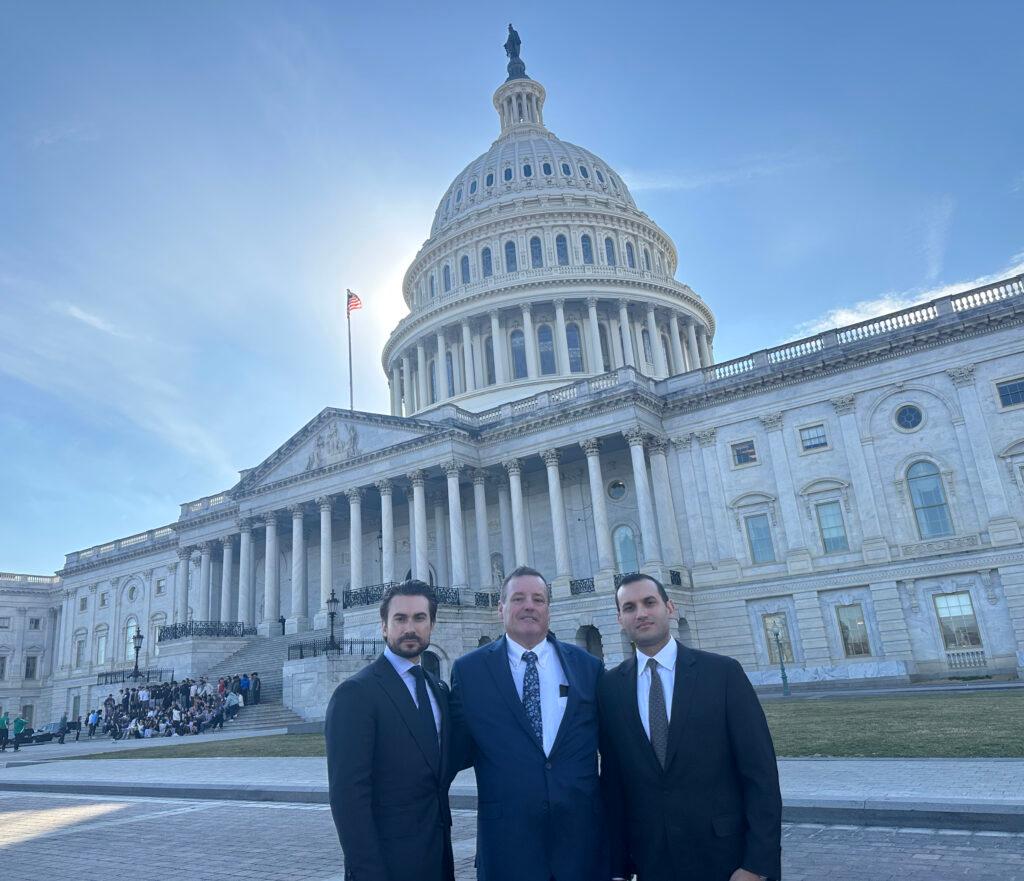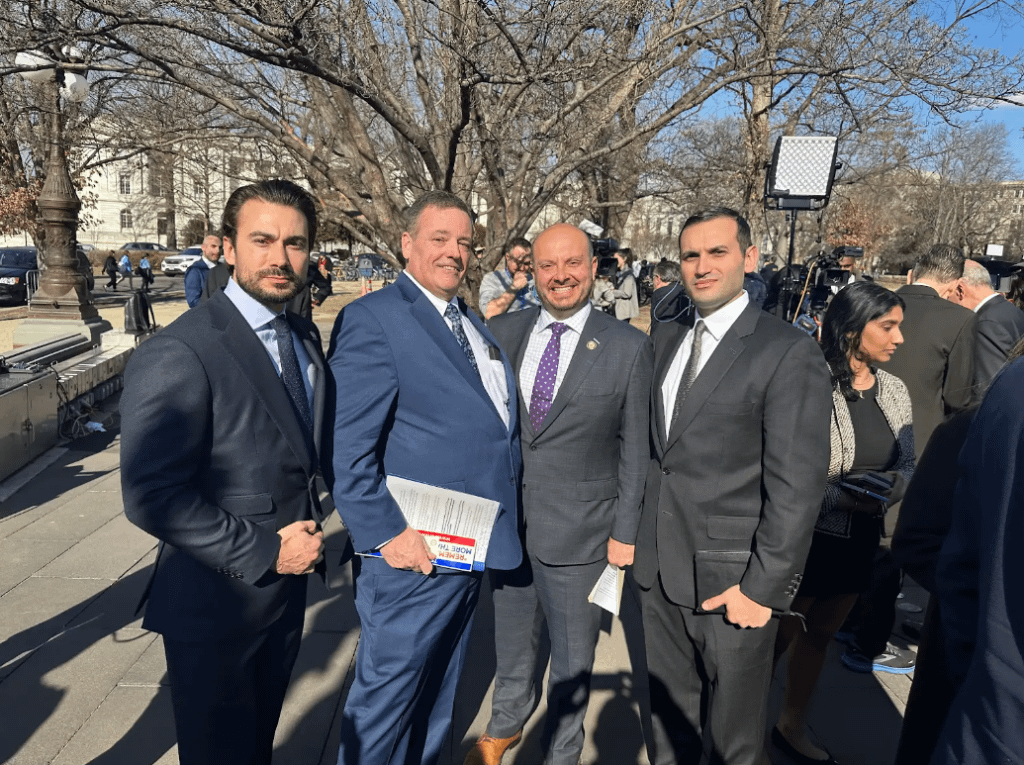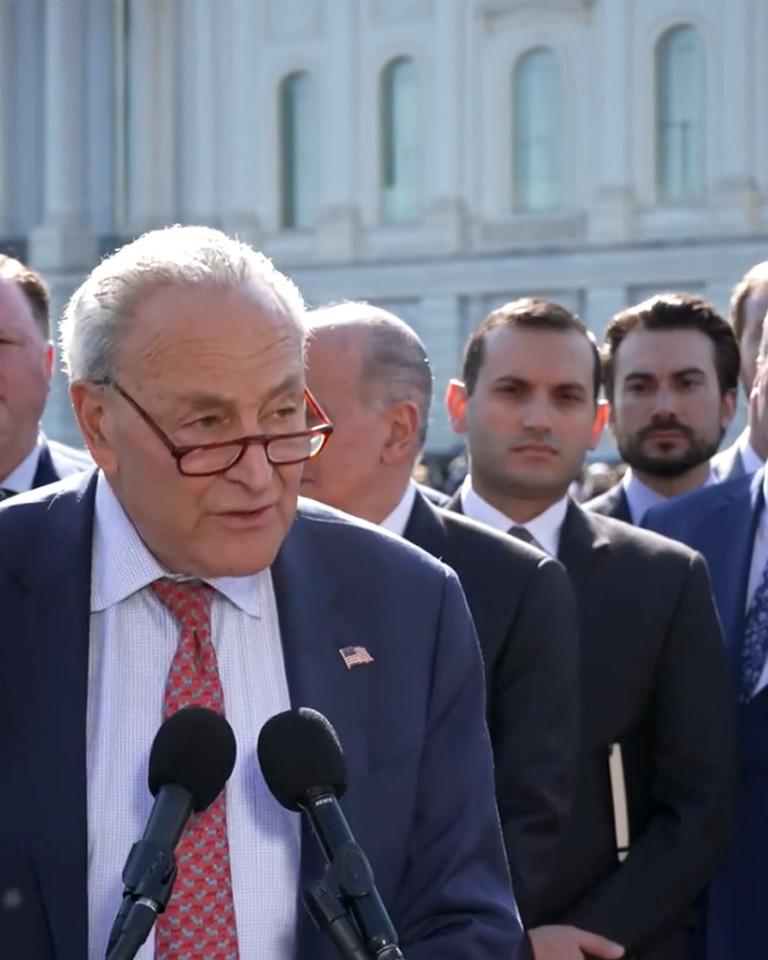On February 26, 2025, a bipartisan coalition of lawmakers introduced the “9/11 Responder and Survivor Health Funding Correction Act of 2025” (H.R. 1410, S. 739) to address the looming funding shortfall of the World Trade Center Health Program (WTCHP). This initiative underscores the nation’s commitment to supporting over 137,000 responders and survivors affected by the September 11 attacks. Partners Christopher and Matthew Baione joined the members of the congressional delegation and advocates at a press conference on Capitol Hill announcing the introduction.

The Background of the World Trade Center Health Program (WTCHP)
Established under the James Zadroga 9/11 Health and Compensation Act of 2010, the World Trade Center Health Program (WTCHP) provides medical monitoring and treatment for individuals exposed to toxins related to the attacks on 9/11. The program ensures that those who risked their lives during and after the attacks, as well as residents who lived and worked in the corresponding locations, receive necessary healthcare services to treat their related conditions.
However, increasing medical costs and rising cancer rates among enrollees have strained the program’s finances, leading to a projected budget deficit. Without intervention, the WTCHP feared they might have to halt new enrollments by 2027 and reduce services for existing members thereafter.
The Legislative Response to the 9/11 Funding Crisis
In response to these challenges, Senators Kirsten Gillibrand (D-NY) and Charles Schumer (D-NY), along with Representatives Andrew Garbarino (R-NY), Jerrold Nadler (D-NY), Tom Kean (R-NJ), Dan Goldman (D-NY), and other members of the New York and New Jersey delegations, introduced the 2025 funding correction act. This bipartisan effort aims to close the WTCHP’s budget gap, working to ensure uninterrupted care for responders and survivors.
Implications of the WTCHP Funding Shortfall
Unfortunately, these financial challenges are not new. In 2023, the program faced a potential deficit due to escalating medical expenses and an increasing number of cancer diagnoses among its members. Advocacy groups highlighted that without additional funding, the program would need to cut services, potentially jeopardizing the health of thousands.
Despite previous congressional actions to mitigate these issues, the program continues to face financial uncertainties, emphasizing the need for a sustainable funding solution.
9/11’s Continued Health Impacts on First Responders
The health repercussions of the 9/11 attacks persist, with more first responders succumbing to related illnesses than those who died on the day of the attacks. As of September 2024, the number of FDNY members in particular who have died from 9/11-related diseases surpassed those lost during the attacks, highlighting the enduring health crisis among responders. This alarming trend underscores the critical importance of programs like the WTCHP and the Victim Compensation Fund (VCF).
Advocacy and Support for the WTCHP
Advocates, including the Citizens for the Extension of the James Zadroga Act, have consistently emphasized the need to address the WTCHP’s funding challenges. The group was founded on the principle of working to ensure that the WTCHP is fully funded so that 9/11 responders and survivors who are ill can get the medical help they need. While at the Capitol, Partners Christopher and Matthew accompanied Tommy Hart, President of Citizens for the Extension of the James Zadroga Act and President/Business Agent/Health and Safety Officer of International Union of Operating Engineers Local 94 who delivered an impassioned plea directed at the Trump administration and lawmakers.
Former Special Master of the 9/11 Victim Compensation Fund (VCF) and Citizens for the Extension of the James Zadroga Act Board Member, Rupa Bhattacharyya, also appeared on The Daily Show earlier this week to discuss how Elon Musk’s DOGE project’s budget cuts affect valuable programs like the VCF. She explained how federal programs were typically apolitical until Trump’s second administration and how the World Trade Center Health Program has been affected by these cuts.

The coalition argues that the projected shortfall is foreseeable and that proactive congressional action is essential to uphold the nation’s promise to “Never Forget.” Ensuring continuous care for those affected by 9/11 is not just a matter of policy but a moral obligation.
The introduction of the “9/11 Responder and Survivor Health Funding Correction Act of 2025” represents a pivotal step toward securing the financial stability of the World Trade Center Health Program. Although it has been two decades since the September 11 attacks, it remains as imperative as ever to honor the sacrifices of responders and survivors and to support local citizens by ensuring everyone receives the healthcare they deserve. Bipartisan support for this legislation reflects a unified commitment to fulfilling this enduring promise.

Talk to a Lawyer at Pitta & Baione LLP for Help with Your 9/11-Related Claim
The lawyers at Pitta & Baione LLP are committed to helping victims of the attacks on September 11, 2001. We have secured millions for people just like you. If you are having difficulty receiving your healthcare benefits for a 9/11-related condition, don’t wait – contact us today for help.



